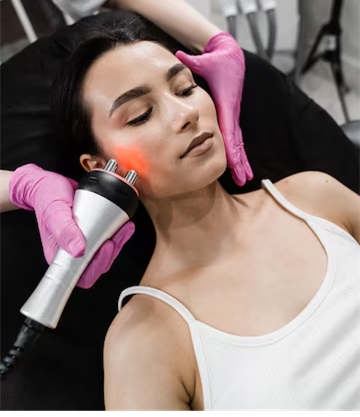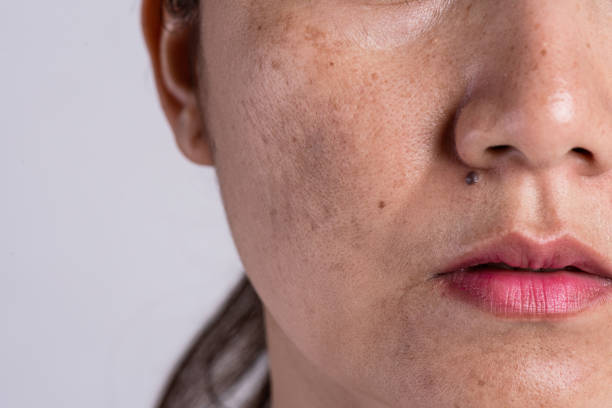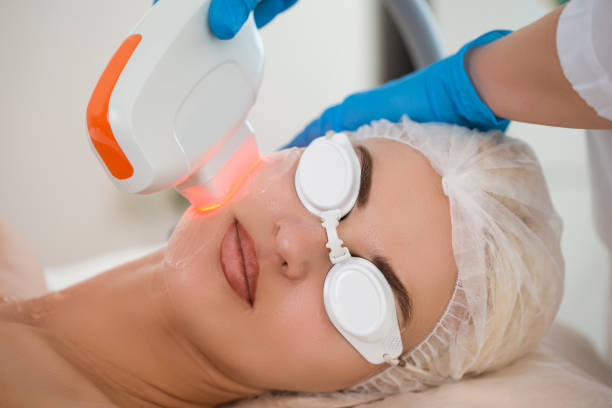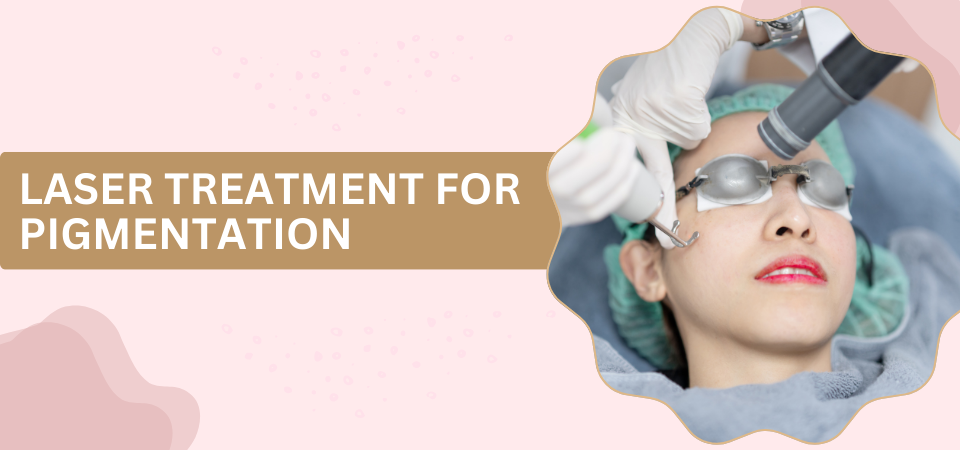
Reasons for Eczema
June 17, 2024
Top Monsoon Skincare Tips for Dewy Skin
July 5, 2024Dr. Anju Methil stands at the forefront of addressing concerns . She offers expert advice and treatment options like laser treatment for pigmentation in Mumbai. She has an extensive years of experience in dermatology. Dr. Methil is an esteemed dermatologist in Andheri, Mumbai. Her approach integrates the latest technology with meticulous care. She ensures optimal outcomes for her patients.
What is Pigmentation?

Pigmentation refers to the coloring of the skin, which occurs due to the production and deposition of melanin. Various factors can lead to changes in skin pigmentation. These include sun exposure, genetics, and health conditions resulting in spots or areas that are darker than the surrounding skin. These changes can be cosmetic concerns or indicators of medical issues.
Curious about how to tackle unwanted pigmentation? Consulting with an experienced professional can provide the clarity and solutions you need.
Are you tired of trying to cover up uneven skin tones? Here’s what you need to know.
Types of Skin Pigmentation Disorders

“When it comes to skin pigmentation, several types can affect individuals. This requires a specific approach to treatment, ” explains Dr. Methil.
Different types of skin pigmentation include:
- Melasma: Often triggered by hormonal changes, appearing as dark, patchy areas, typically on the face.
- Sunspots (Solar Lentigines): These are usually a result of prolonged sun exposure and are common in older adults.
- Post-inflammatory hyperpigmentation: This occurs after an injury or inflammation of the skin, such as acne scars or eczema.
- Freckles: Small, brown spots commonly found on people with a fair complexion, mainly caused by genetics and sun exposure.
Interested in addressing your pigmentation issues? Connect with a skilled professional to explore your options.
Wondering if laser treatment would be right for you? Let’s delve into the details.
What is Laser Treatment for Pigmentation?

Laser treatment for pigmentation involves using concentrated light beams. It targets melanin deposits in the skin. This procedure can significantly reduce the appearance of dark spots and improve overall skin tone. The treatment is non-invasive. Many patients experience substantial improvement after just a few sessions.
The process works by the laser emitting a wavelength that is absorbed by the pigment in the skin. This light energy is then converted into heat. It breaks down the pigment into smaller particles that the body can naturally remove. The specificity of the laser ensures that only the pigmented areas are targeted. It leaves the surrounding skin unaffected.
Ready to achieve a more even skin tone? A consultation with a dermatologist can set you on the right path.
Curious how laser therapy for pigmentation actually works? Let’s break it down.
How Laser Treatment Works?
Laser treatment employs a precise technology designed to target pigmentation without damaging surrounding tissues. Here’s how it functions:
Targeting Melanin: Lasers are configured to emit wavelengths absorbed by the melanin, ensuring that only the pigmented areas are affected.
Heat Generation: The absorbed light converts to heat, fragmenting the pigment.
Natural Removal: The body’s lymphatic system then eliminates the fragmented pigment, clearing the pigmentation over time.
This targeted approach allows for effective treatment of pigmented lesions with minimal risk of side effects, making it a preferred choice for many seeking clearer skin.
Explore the possibilities of enhancing your skin’s appearance. Consult with a dermatologist for personalized laser treatment options.
Interested in the benefits? Here’s what you can expect.
Benefits of Laser Treatment for Pigmentation
Laser treatment for pigmentation offers numerous benefits, including:
- Precision: Targets only the pigmented areas without affecting the surrounding skin.
- Minimal Downtime: Most treatments require no downtime, allowing patients to return to daily activities immediately.
- Fast Results: Visible improvements can often be seen after just a few sessions.
- Long-lasting Outcomes: Many patients experience a permanent reduction in pigmentation.
Looking to refresh your skin’s appearance? Consultation with a dermatological expert can guide you towards the right treatment.
Wondering how to maintain your results? Here’s what you need to know.
Post Laser Treatment Care
Proper care following laser pigmentation treatment is crucial for achieving the best results. Here are essential care tips provided by Dr. Anju Methil:
- Sun Protection: Use a broad-spectrum sunscreen to protect the skin from UV damage.
- Gentle Skin Care: Avoid harsh products that could irritate the treated areas.
- Moisturize Regularly: Keeping the skin hydrated helps support the healing process.
- Follow-up Visits: Regular check-ups with your dermatologist to monitor progress.
- Avoid Heat Exposure: Stay away from saunas and hot showers immediately after treatment.
Conclusion
Laser treatment for pigmentation effectively reduces dark spots and uneven skin tones. It enhances appearance and confidence. With minimal downtime, it offers long-lasting improvements without significant disruption. Consult with an experienced professional like Dr. Anju Methil, a dermatologist in Andheri, Mumbai. She ensures comprehensive care plans using advanced laser technologies. Her meticulous follow-up care and expertise make her a reliable choice. She provides effective treatments and tailored advice for individual dermatological needs.
Frequently Asked Questions:
Is Laser Treatment Good for Pigmentation?
Yes, laser treatment is effective for reducing dark spots and uneven skin tones, enhancing overall skin appearance and confidence.
Does Pigmentation Come Back After Laser?
Pigmentation can return if underlying causes are not addressed. Proper skincare and sun protection are essential to maintain results.
How Does Laser Pigmentation Removal Work?
Laser pigmentation removal uses focused light to break down melanin in dark spots, which is then naturally cleared by the body’s immune system.

